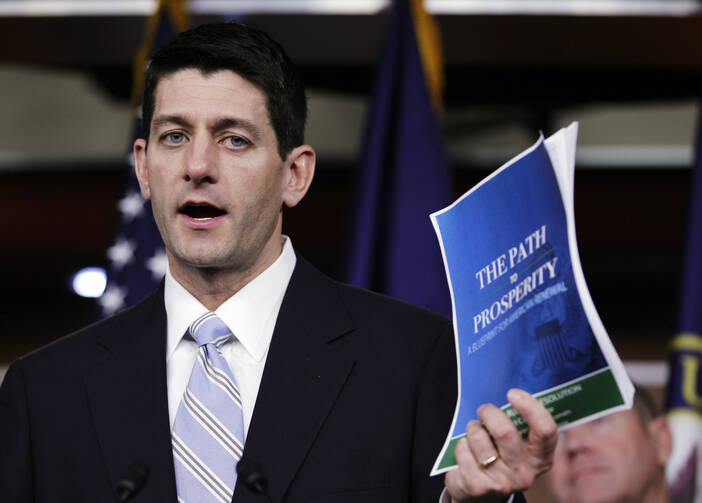The Republican Party got some free — and inadvertent — rebranding advice this month from the Congressional Budget Office. First, the CBO estimated that the Affordable Care Act would eventually cause beneficiaries to reduce work hours by the equivalent of 2 million full-time jobs. And this week, the research bureau calculated that raising the minimum wage to $10.10 an hour, a priority for the Democratic Party, would result in the loss of about 500,000 jobs (or 0.3 percent of all jobs).
The CBO did not actually take the side of the Republican Party in either case. It concluded that ACA would pull people out of the labor force but not necessarily lead to a reduction in jobs. As for the minimum wage increase, the CBO estimated that it would lift 900,000 people above the poverty threshold and add $31 billion to the incomes of low-wage workers. (After taking into account job losses and higher prices for consumer goods, “overall real income would rise by $2 billion.”) That’s why Wal-Mart may support a hike; it would mean people spending more at its stores. But Republicans have seized upon “job loss” as an issue, even as they remain resolute that government should do nothing to directly create jobs.
The “work ethic” was once better known as the “Protestant ethic,” and as a native of Massachusetts, I associate the latter phrase with the Yankee vs. Catholic conflict that shaped my state’s politics. If the Republicans are going to campaign on the work ethic, are attacks against “papism” far behind? Will the party rejuvenate the Prohibition movement and outlaw alcohol at the same time it blocks the legalization of marijuana?
I suppose those dangers are remote when self-identified Catholics such as Paul Ryan, Marco Rubio, and Bobby Jindal are among the biggest advocates of what Ryan calls the “dignity of work.” (Rand Paul has also been bringing up the work ethic as a reason to support restoring voting rights to ex-felons, and for rehabilitation efforts in general: “You want to keep people from committing crimes? Let them work again.”) The problem is that a zero-tolerance policy on people losing or quitting jobs precludes support for any anti-poverty initiative — including Social Security, which incentivizes the elderly to drop out of the labor force even if they haven’t saved enough money to live on.
There’s also a possibly unfortunate juxtaposition if the Republicans continue to block immigration reform while championing the “work ethic.” The party has a problem keeping its xenophobic wing under control, and it can’t risk trafficking in stereotypes of the sort associated with the late historian Samuel P. Huntington, who asserted in a 2004 Foreign Policy article, “Latinos have not assimilated into mainstream U.S. culture, forming instead their own political and linguistic enclaves — from Los Angeles to Miami — and rejecting the Anglo-Protestant values that built the American dream.” (Also see Andrew Sullivan on opposition to immigration reform: “Isn’t there an obvious, if unstated, cultural fear here that Latino culture is less work-obsessed than white Protestant culture (despite the staggering work ethic of so many Latino immigrants)?”)
Both new immigrants and undocumented residents given a path to citizenship can help job growth, by starting new businesses and by purchasing homes and consumer goods. Many parts of the United States would have suffered population losses since the turn of the century if not for immigration, and a declining population is incompatible with job growth. This is why states like Michigan are begging for skilled immigrants.
Encouraging the “dignity of work” is laudable, even if it doesn’t eliminate the need for anti-poverty programs. But a notoriously unproductive Congress isn’t on high moral ground here, and stalling on immigration reform gives it even less authority to lecture the rest of the population.









In retrospect, "self-identified Catholics" has an unneccessary modifier. I was distracted by Marco Rubio's complicated history that includes an affiliation with a Protestant evangelical church, but that's not relevant to this discussion. Douthat makes some good points, and as you say, he is not reflexively against all welfare programs and does not argue that ANY job reductions must be avoided. Alas, I think his subtleties would disqualify him from a Republican nomination in most jurisdictions.